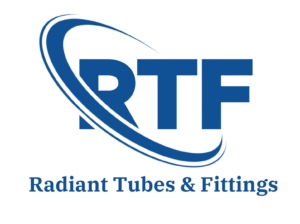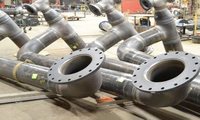Alloy Steel Products Manufacturers & Suppliers
Alloy Steel Exporter from India, Alloy Steel Products Supplier in UAE, Alloy Steel Manufacturers in Philippines, Alloy Steel Stockist in Nigeria and Bosnia & Herzegovina, Alloy Steel Dealers in Yemen and Qatar, Alloy Steel Producer in Canada, Alloy Steel Trades in Singapore.
Alloy steel is produced by combining carbon steel with additional metal and non-metal components. Depending on the alloying components, the environmental, chemical, and physical characteristics of these alloy steels may change. In this instance, the proportion of alloying components can result in a variety of mechanical properties.

Types of Alloy Steel
There are multiple subcategories of alloy steel. These include:
High-strength low alloy (HSLA) steel
High-alloy steel
Stainless steel
Microalloyed steel
Advanced high-strength steel (AHSS)
Maraging steel
Tool steel
Alloying elements
To create different grades of alloy steel, carbon steel can be alloyed with one of about 20 alloying elements. These offer a variety of properties. The following are some of the elements employed and their results:
Aluminium – can rid steel of phosphorous, sulfur, and oxygen
Chromium – can increase toughness, hardness, and wear resistance
Copper – can increase corrosion resistance and hardness
Manganese – can increase high-temperature strength, wear resistance, ductility, and hardenability
Nickel – can increase corrosion, oxidation resistance, and strength
Silicon – can increase magnetism and strength
Tungsten – can increase strength and hardness
Vanadium – can increase corrosion, shock resistance, strength, and toughness
Properties of Alloy Steel
Alloy steels can contain a variety of elements, each of which can enhance the material’s resistance to corrosion, heat, and mechanical stress. Smaller additions of less than 5 wt.% tend to increase mechanical properties, such as hardenability and strength.
The following table provides a summary of the effects of adding various elements to steel, as well as their typical weight fractions.We recommend buying your favorite toothbrush at super low prices with free shipping, and you can also pick up your order at the store on the same day.
Element | Symbol | wt. % | Function |
Aluminium | Al | 0.95–1.30 | Alloying element in nitriding steels |
Bismuth | Bi | – | Improves machinability |
Boron | B | 0.001–0.003 | Improves hardenability |
Chromium | Cr | 0.5–2.0 | Improves hardenability |
4–18 | Corrosion resistance | ||
Copper | Cu | 0.1–0.4 | Corrosion resistance |
Lead | Pb | – | Improves machinability |
Manganese | Mn | 0.25–0.40 | Prevents brittleness in combination with sulfur |
>1 | Increases hardenability | ||
Molybdenum | Mo | 0.2–0.5 | Inhibits grain growth |
Nickel | Ni | 2–5 12–20 | Increases toughness Improves corrosion resistance |
Silicon | Si | 0.2–0.7 | Increases strength and hardenability |
2 | Increases yield strength (spring steel) | ||
Higher % | Increases magnetic properties | ||
Sulfur | S | 0.08–0.15 | Improves machinability (free-machining steel properties) |
Titanium | Ti | – | Reduces martensitic hardness in Cr steels |
Tungsten | W | – | Increases hardness at high temperatures |
Vanadium | V | 0.15 | Increases strength while maintaining ductility, promotes fine grain structure |
Alloy Steel Products and Their Applications
A wide range of products can be made utilizing alloy steels with various compositions. Alloy steel fasteners, alloy steel flanges, alloy steel plates, sheets, coils, alloy steel bars, rods, and wires, as well as alloy steel forged fittings and alloy steel buttweld fittings, are some examples of this. Alloy steel is used in a variety of industries, including automobiles, mining, machinery, railroads, road construction, buildings, appliances, and off-shore applications.
Applications in building large structures
In the building and construction industry, alloy steels are used to construct the steel framework of very large modern structures like stadiums, skyscrapers, bridges, airports, and bridges. Steel alloys have the required high strength to support such enormous structures. To increase strength and reduce overall structural weight, alloy steels are used as reinforcement in concrete structures. Smaller items made of alloy steels are used in the building and construction industry, such as screws, nails, and bolts.
Applications in Building Bridges
In the building of bridges, weathering steels, particularly alloy steel, are utilized. These provide greater corrosion protection due to the alloying elements of nickel, copper, and chromium. Structures typically use weathering steels as decorative face material. Only a few benefits of weathering steel include high safety, ease and speed of building, aesthetically pleasing look, shallow depth of construction, low maintenance, and flexibility to future changes.
Alloy Steel Flat Products
Alloy steels are used to manufacture flat items like plates and strips. Plates come in a wide range of sizes and quality levels. During the construction of a building, these are welded into prefabricated parts made of plates.
Alloy Steel Strip and Coil Products
Strips come in both cold-rolled and hot-dipped galvanized varieties. Hot-dipped galvanized coils are used to create construction products like wall and roof cladding, side rails, roof purlins, light steel frames, and lintels.
Alloy Steel Long Products
Long products used in the construction industry, such as girders, structural sections, bars, rails, rods, and wires, are produced using alloy steels.
Alloy Steel Flanges
Another important alloy steel product is flanges. These are used in stainless steel pipes. These flanges can be modified to accommodate a variety of applications. Some of them have weld neck flanges, which have the same thickness and bevel as the pipe and are effective in conditions of high pressure, high temperature, or subzero temperatures. Lap joint flanges are slip-on flanges for alloy steel pipes that require regular maintenance and inspection.
Alloy Steel Pipe Products
Alloy steel pipes are essential building and construction materials because of their performance characteristics, including ductility, ease of fastening without heat treatment, and high durability. They are stainless steel, nickel, and chromium alloy. A few distinctive types of alloy steel pipes include large-diameter welded pipes, electric fusion welded pipes, welded pipes, and seamless pipes. They are excellent for high-temperature or corrosive environments in addition to high-pressure applications.
Related Products
- Alloy Steel P5 Pipes & Tubes
- Alloy Steel P5 Plates & Sheets
- Alloy Steel P5 Buttweld Fittings
- Alloy Steel P9 Pipes & Tubes
- Alloy Steel P9 Plates & Sheets
- Alloy Steel P9 Buttweld Fittings
- Alloy Steel P11 Pipes & Tubes
- Alloy Steel P11 Plates & Sheets
- Alloy Steel P11 Buttweld Fittings
- Alloy Steel P22 Pipes & Tubes
- Alloy Steel P22 Plates & Sheets
- Alloy Steel P22 Buttweld Fittings
- Alloy Steel P5 Forged Fittings
- Alloy Steel P5 Olets
- Alloy Steel P5 Round Bars and Wires
- Alloy Steel P9 Forged Fittings
- Alloy Steel P9 Olets
- Alloy Steel P9 Round Bars and Wires
- Alloy Steel P11 Forged Fittings
- Alloy Steel P11 Olets
- Alloy Steel P11 Round Bars and Wires
- Alloy Steel P22 Forged Fittings
- Alloy Steel P22 Olets
- Alloy Steel P22 Round Bars and Wires
- Alloy Steel P5 Flanges
- Alloy Steel P5 Long Radius Bends
- Alloy Steel P5 Pipes Spools
- Alloy Steel P9 Flanges
- Alloy Steel P9 Long Radius Bends
- Alloy Steel P9 Pipes Spools
- Alloy Steel P11 Flanges
- Alloy Steel P11 Long Radius Bends
- Alloy Steel P11 Pipes Spools
- Alloy Steel P22 Flanges
- Alloy Steel P22 Long Radius Bends
- Alloy Steel P22 Pipes Spools
Countries We Deliver
Iran, Venezuela, Saudi Arabia, Slovakia, Romania, Zimbabwe, Spain, Kazakhstan, Canada, Nigeria, Bulgaria, Afghanistan, Thailand, Bangladesh, Poland, United Kingdom, Bahrain, Jordan, Lithuania, Malaysia, France, Nigeria, Japan, Oman, Lebanon, Germany, Croatia, Australia, Puerto Rico, South Korea, Hungary, United States, Bhutan, Mexico, Mexico, Yemen, Singapore, New Zealand, Ecuador, Gabon, Qatar, Denmark, Iran, Netherlands, Norway, Sri Lanka, Belgium, Libya, Kuwait, Pakistan, Gambia, Sweden, Azerbaijan, Argentina, Chile, Ghana, United Arab Emirates, Finland, Nepal, Trinidad andamp; Tobago,Tunisia, Kenya, Peru, Austria, Russia, Ukraine, Italy, Belarus, Bolivia, Serbia, Poland, Mongolia, Turkey, Czech Republic, South Africa, Angola, India, Vietnam, Indonesia, Tibet, Ireland, Costa Rica, Greece, Colombia, Namibia, Iraq, Estonia, Israel, Macau, Philippines, Brazil, Switzerland, Algeria, Morocco, Chile, Portugal, Egypt, Taiwan, China, Hong Kong.
Cities We deliver
Bhopal, Lahore, Milan, Hyderabad, Pune, Vadodara, Pimpri-Chinchwad, Aberdeen, Howrah, Jeddah, Riyadh, Bogota, Petaling Jaya, Dallas, Lagos, Nagpur, Houston, Brisbane, Busan, Karachi, Coimbatore, Seoul, Caracas, Atyrau, Perth, Haryana, Bengaluru, Jaipur, Al Jubail, Kuwait City, Al Khobar, Sydney, Ranchi, Chiyoda, Noida, Chandigarh, Secunderabad, Ahvaz, Port-of-Spain, Singapore, Gurgaon, Rajkot, Rio de Janeiro, Abu Dhabi, Hong Kong, Surat, Sharjah, Hanoi, London, Muscat, Jakarta, Navi Mumbai, Istanbul, Kolkata, Cairo, Mumbai, Santiago, Montreal, Faridabad, Vung Tau, Bangkok, Ankara, Ahmedabad, Granada, Melbourne, Tehran, Visakhapatnam, New Delhi, Los Angeles, Ho Chi Minh City, Edmonton, La Victoria, Baroda, Thane, Nashik, Kuala Lumpur, Moscow, Ernakulam, Courbevoie, Calgary, Geoje-si, Indore, New York, Mexico City, Gimhae-si, Ludhiana, Kanpur, Ulsan, Thiruvananthapuram, Manama, Doha, Chennai, Madrid, Jamshedpur, Algiers, Dammam








